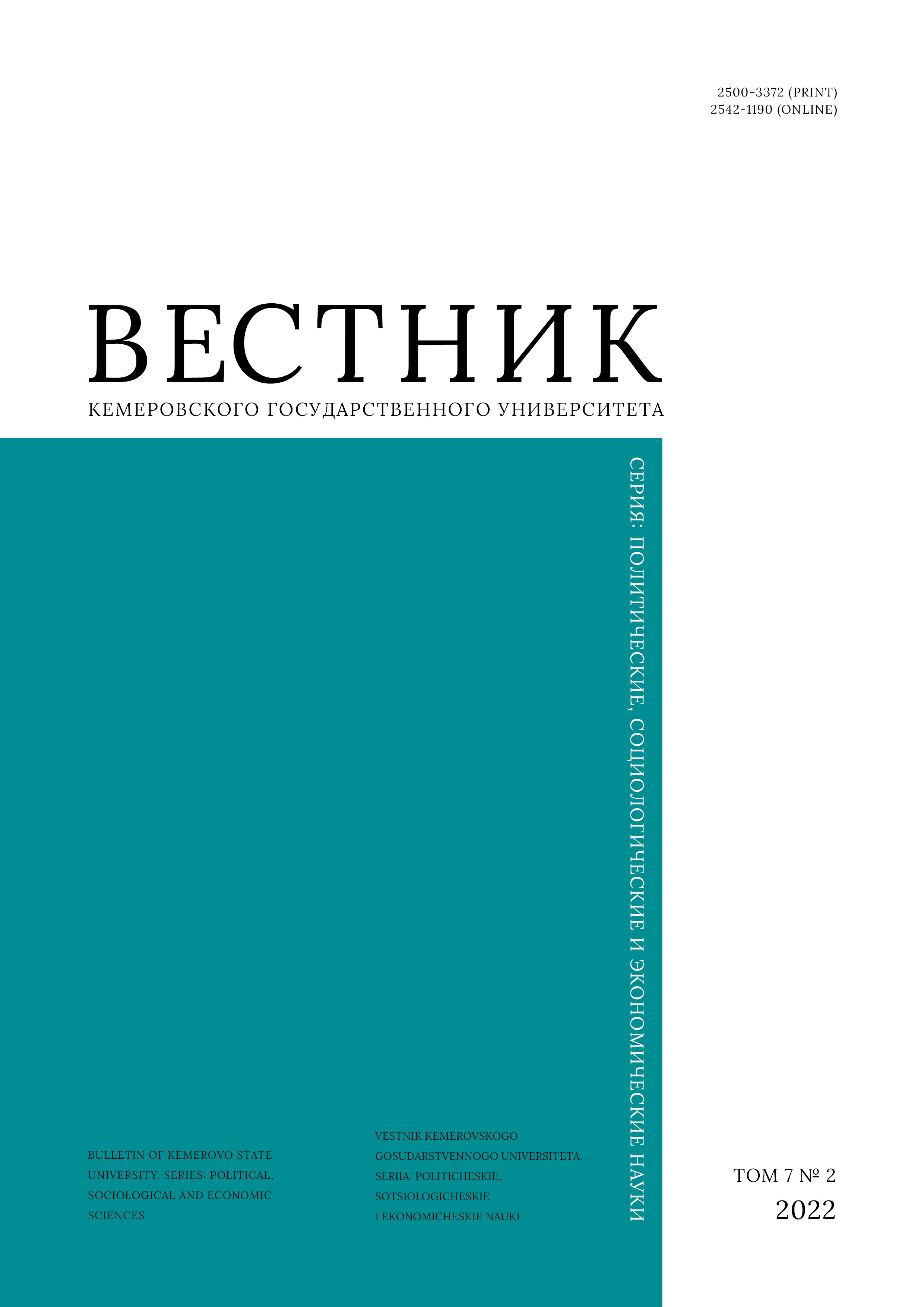Novosibirsk, Novosibirsk, Russian Federation
The article considers the Strategy of State Cultural Policy 2030 and the way it complies with the principles established by Federal Law No. 172-FZ On the State Strategic Planning (June 28, 2014). The principles include transparency, realism, resource availability, measurability of goals, multichannel financing, etc. The research featured the quality of strategic management in the sphere of culture in the context of the abovementioned Strategy. The research was based on the institutional approach and assessed the availability of monitoring tools for its implementation. The study revealed some shortcomings in the content of the Strategy of State Cultural Policy 2030. For instance, the strategic management is only at the second stage in the evolution of approaches to the development and implementation of strategies, i.e., strategic planning. The third and fourth stages of evolution are to adjust the strategic capabilities of the public administration system to the real-time management, and they still remain a matter for the distant future. The elements of multichannel financing of culture include a system of tax preferences, marked taxes, sponsorship and patronage, the institution of budget allocations, endowment funds, etc. However, these measures have certain limitations and contradict the current norms of budgetary and tax legislation. The state remains the main sponsor of culture, despite the expansion of the list of state cultural policy subjects and the roles of the state, e.g., the state as an investor, a philanthropist, a co-investor, etc. As a result, new development challenges may lead to underfunding. The financial mechanism for strategy implementation presupposes no transparent bond between the strategy and budgetary spending.
strategic management, strategic planning, strategy, strategy of state cultural policy, principles, targets, financial mechanism for implementation the strategy
1. Ansoff I. Strategic management. Moscow: Ekonomika, 1989, 519. (In Russ.)
2. Doyle P., Shtern F. Marketing, management and strategy. 4th ed. St. Petersburg: Piter, 2007, 544. (In Russ.)
3. Drucker P. F. The practice of management. Moscow: Viliams, 2000, 397. (In Russ.)
4. Drucker P. F. Management: tasks, responsibilities, practices. N. Y.: Harper Business, 1993, 864.
5. Mintzberg H. The fall and rise of strategic planning. Harvard Business Review, Jan-Feb 1994, 107-114.
6. Chandler A. D. Strategy and structure: a chapter in the history of industrial enterprises. Cambridge: The M.I.T. Press, 1962, 463.
7. Andrews K. R. The concept of corporate strategy. Homewood, IL: Dow Jones-Irwin, 1971, xviii+245.
8. Glushakova O. V. On the relationship between Russia’s national development goals and budgetary spending - the attainability of the goals during the COVID-19 pandemic. Finance and Credit, 2021, 27(7): 1444-1475. (In Russ.) https://doi.org/10.24891/fc.27.7.1444
9. Glushakova O. V., Vaysberg Ya. A. Evaluation of the effectiveness of the strategic architecture of the public administration system for the socio-economic development of the territory. Novosibirsk: SAFB, 2014, 269. (In Russ.)
10. Kuz'min D. V., Yashchenko V. V., Bychkov A. A. Theoretical development of approaches to the formation of the system of strategic management of social and economic development. Gosudarstvennyi audit. Pravo. Ekonomika, 2012, (4): 108-112. (In Russ.)
11. Fadeikina N. V., Leonov V. V., Baranova I. V., Bovin A. A., Nikiforova L. E., Pepelyaeva L. V., Pritupov V. G., Pavlov S. I. Tools development for interaction of the public administration system subjects for the socio-economic development of the territories. Novosibirsk: SAFB, 2012, 444. (In Russ.)
12. Shishova A. P. Implementation of the state cultural policy strategy for the preservation of cultural heritage. Vestnik Tverskogo gosudarstvennogo universiteta. Seriia: ekonomika i upravlenie, 2020, (3): 203-211. (In Russ.) https://doi.org/10.26456/2219-1453/2020.3.203
13. Kostina A. V., Lukov V. A., Horina G. P. Culture and national security of Russia: basic ideological principles: politological analysis. PolitBook, 2015, (4): 140-153. (In Russ.)
14. Petrova L. E., Akhyamova I. A., Trofimova E. E., Egorova A. A. Culture of modernity, modernity in a culture: how to implement the national strategy under the conditions of global challenges. Management Issues, 2021, (2): 134-145. (In Russ.) https://doi.org/10.22394/2304-3369-2021-2-134-145
15. Devyatov R. S. National strategies of state cultural policy in the context of globalization. Etnosotsium and international culture, 2020, (10): 9-16. (In Russ.)
16. Betekhtin A. V. Personnel reserve in the sphere of culture: regional cultural policy orientations and strategies. Culture and Arts Herald, 2020, (4): 58-63. (In Russ.)
17. Polyakov T. P., Zotova T. A., Pustovoit Yu. V., Nelzina O. Ju., Korneeva A. A. Exposition activities of museums in the context of the implementation of the "Strategy of the state cultural policy through 2030". Moscow: Heritage Institute, 2021, 438. (In Russ.) https://doi.org/10.34685/HI.2020.11.84.020
18. Van der Ploeg F. The making of cultural policy: a European perspective. CESifo Working Paper, 2005, (1524). http://dx.doi.org/10.2139/ssrn.812309
19. Alemanno A. Stakeholder engagement in regulatory policy. Regulatory Policy Outlook, OECD Publishing, 2015, 62.
20. Vostryakov L. E. The state cultural policy: cognitive models and state distinctions. Nauchnye trudy Severo-Zapadnoi akademii gosudarstvennoi sluzhby, 2011, 2(2): 166-178. (In Russ.)





















